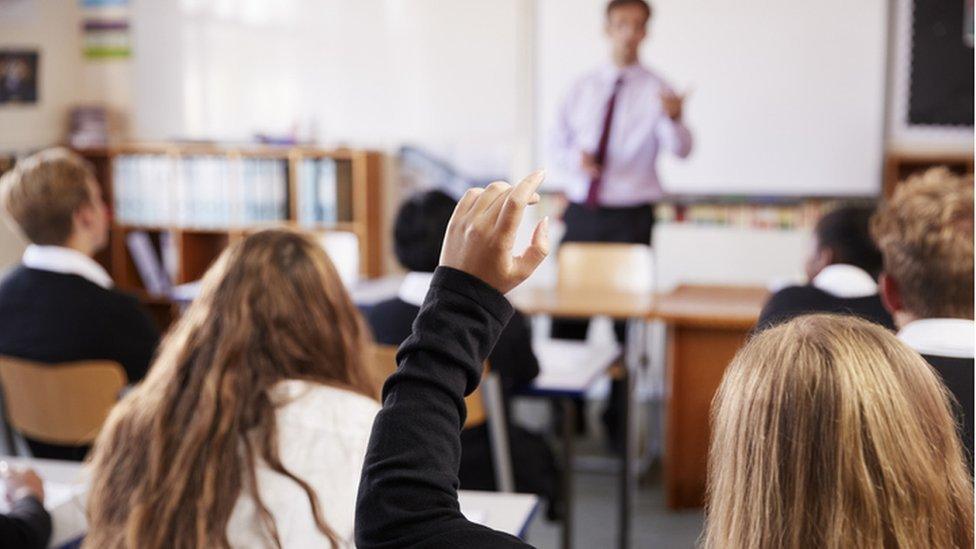Article: published on 13 July 2023

Sex education to be compulsory in Irish schools
At a glance
Sex education will become compulsory for 15 to 18 year olds
It is part of a major overhaul of the curriculum
The lessons will be provided for an hour a week
Lessons will be taught in a way that integrates LGBTQ+ issues, the National Council for Curriculum and Assessment has said
- Published
Lessons in relationships and sex education (RSE) are to be compulsory for 15 to 18 year olds at schools in the Republic of Ireland.
The move is planned as part of changes to the social, personal and health education (SPHE) for senior pupils.
Lessons will be "taught in a way that LGBTQ+ identities, relationships and families are fully integrated", according to the National Council for Curriculum and Assessment (NCCA).
A major review of RSE in schools in the Republic of Ireland was ordered by the government in 2018.
That has already led to changes to the RSE curriculum in primary and post-primary schools.
The SPHE curriculum for senior pupils is the latest to be updated as a result of the review.

Students will be taught SPHE lessons for one hour per week under planned changes
Under the planned changes in the Republic of Ireland, post-primaries will be expected to provide one hour a week of SPHE lessons to senior pupils.
There will be lessons on health and wellbeing, relationships and sexuality and "into adulthood".
The relationships and sexuality lessons will teach pupils about "nurturing respectful, caring and healthy relationships".
Among the topics covered will be "consent, intimacy and mutual pleasure" and how to identify abusive or violent relationships.
That will include "a particular focus on violence against women and girls."
Pupils will also be taught about safe sex, responses to unplanned pregnancy and accessing sexual health services.
In addition, they will learn about "how harmful attitudes around gender are perpetuated in the media, online and in society" and how to challenge those.
According to the NCCA guidance, the lessons should be taught in a way that LGBTQ+ identities, relationships and families are fully integrated in teachings, rather than being part of stand-alone lessons.
In the Into Adulthood lessons, pupils will be taught about "allyship skills" to challenge unfair or abusive behaviour.
According to the NCCA, that involves "recognising and using one’s privileged status (for example as white or male or Irish person) to support individuals from minority identity groups".
A consultation on the new curriculum is taking place until October.
Catholic Bishops have previously approved distinct RSE lessons for Catholic primary schools in the Republic of Ireland and Northern Ireland.
Meanwhile in Northern Ireland, it will be compulsory for all post-primary schools to teach pupils about access to abortion and prevention of early pregnancy from January 2024.
That is because the Northern Ireland Secretary Chris Heaton-Harris recently laid new regulations in Parliament on RSE.
There have been a number of recent reports critical of how the subject is taught in Northern Ireland.
But there has been criticism of Mr Heaton Harris's move by representatives of Protestant and Catholic churches.